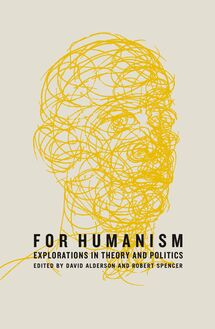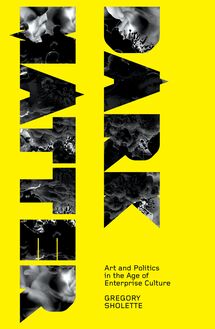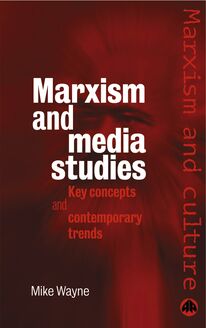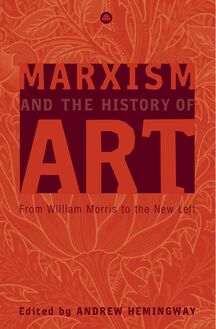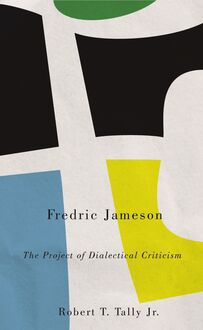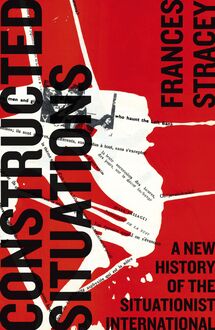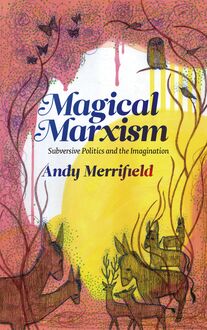-
 Univers
Univers
-
 Ebooks
Ebooks
-
 Livres audio
Livres audio
-
 Presse
Presse
-
 Podcasts
Podcasts
-
 BD
BD
-
 Documents
Documents
-
- Cours
- Révisions
- Ressources pédagogiques
- Sciences de l’éducation
- Manuels scolaires
- Langues
- Travaux de classe
- Annales de BEP
- Etudes supérieures
- Maternelle et primaire
- Fiches de lecture
- Orientation scolaire
- Méthodologie
- Corrigés de devoir
- Annales d’examens et concours
- Annales du bac
- Annales du brevet
- Rapports de stage
La lecture à portée de main
Vous pourrez modifier la taille du texte de cet ouvrage
Découvre YouScribe en t'inscrivant gratuitement
Je m'inscrisDécouvre YouScribe en t'inscrivant gratuitement
Je m'inscrisEn savoir plus
Vous pourrez modifier la taille du texte de cet ouvrage
En savoir plus

Description
In Fredric Jameson: The Project of Dialectical Criticism, Robert Tally surveys Jameson's entire oeuvre, from his early studies of Sartre and formal criticism through his engagements with postmodernism and globalisation to his recent readings of Hegel, Marx and the valences of the dialectic.
The book is both a comprehensive critical guide to Jameson’s theoretical project and itself a convincing argument for the power of dialectical criticism to understand the world today.
Series Editors' Preface
Acknowledgements
Selected Works by Fredric Jameson
Introduction: Jameson as Educator
1. “… the dialectic requires you to say everything simultaneously …”
2. The Task of the Translator
3. The Untranscendable Horizon
4. The Cultural Logic of Late Capitalism
5. Cognitive Mapping and Globalization
6. The Thing about Modernity
7. Other Spaces are Possible
Conclusion: Reading Jameson
Notes
Index
Sujets
Philosophie politique
Jacques Derrida
Friedrich Nietzsche
Karl Marx
Louis Althusser
Bertolt Brecht
Theodor W. Adorno
Déconstruction
Walter Benjamin
Herbert Marcuse
Ernest Mandel
Ernst Bloch
Communisme
Erich Auerbach
Georg Lukács
Perry Anderson
Gilles Deleuze
Terry Eagleton
Jean-Paul Sartre
Deconstruction
Postmodernism
György Lukács
Western Marxism
Communism
Philosophy
Theodor Adorno
Philosophie et théologie
POLITICAL SCIENCE
Political
Political Ideologies
Informations
| Publié par | Pluto Press |
| Date de parution | 20 juin 2014 |
| Nombre de lectures | 0 |
| EAN13 | 9781783711604 |
| Langue | English |
Informations légales : prix de location à la page 0,1498€. Cette information est donnée uniquement à titre indicatif conformément à la législation en vigueur.
Extrait
Fredric Jameson
Marxism and Culture
Series Editors: Professor Esther Leslie, Birkbeck, University of London Professor Michael Wayne, Brunel University
Red Planets: Marxism and Science Fiction Edited by Mark Bould and China Miéville
Marxism and the History of Art: From William Morris to the New Left Edited by Andrew Hemingway
Magical Marxism: Subversive Politics and the Imagination Andy Merrifield
Philosophizing the Everyday: The Philosophy of Praxis and the Fate of Cultural Studies John Roberts
Dark Matter: Art and Politics in the Age of Enterprise Culture Gregory Sholette
Fredric Jameson: The Project of Dialectical Criticism Robert T. Tally Jr.
Marxism and Media Studies: Key Concepts and Contemporary Trends Mike Wayne
Fredric Jameson
The Project of Dialectical Criticism
Robert T. Tally Jr.
Pluto Press
www.plutobooks.com
First published 2014 by Pluto Press 345 Archway Road, London N6 5AA
www.plutobooks.com
Distributed in the United States of America exclusively by Palgrave Macmillan, a division of St. Martin’s Press LLC, 175 Fifth Avenue, New York, NY 10010
Copyright © Robert T. Tally Jr. 2014
The right of Robert T. Tally Jr. to be identified as the author of this work has been asserted by him in accordance with the Copyright, Designs and Patents Act 1988.
British Library Cataloguing in Publication Data A catalogue record for this book is available from the British Library
ISBN 978 0 7453 3211 6 Hardback ISBN 978 0 7453 3210 9 Paperback ISBN 978 1 7837 1159 8 PDF eBook ISBN 978 1 7837 1161 1 Kindle eBook ISBN 978 1 7837 1160 4 EPUB eBook
Library of Congress Cataloging in Publication Data applied for
This book is printed on paper suitable for recycling and made from fully managed and sustained forest sources. Logging, pulping and manufacturing processes are expected to conform to the environmental standards of the country of origin.
10 9 8 7 6 5 4 3 2 1
Typeset by Stanford DTP Services, Northampton, England Text design by Melanie Patrick Simultaneously printed digitally by CPI Antony Rowe, Chippenham, UK and Edwards Bros in the United States of America
In memory of Rick Roderick, who encouraged me to do better
Contents
Series Editors’ Preface
Acknowledgements
Selected Works by Fredric Jameson
Introduction: Jameson as Educator
1.
“… the dialectic requires you to say everything simultaneously …”
Timely Meditations
Making Things Difficult
Meanwhile
2.
The Task of the Translator
Sartre
Marxism and Form
The Prison-House of Language
3.
The Untranscendable Horizon
Fables of Aggression
The Political Unconscious
The Ideologies of Theory: Situations of Theory and The Syntax of History
4.
The Cultural Logic of Late Capitalism
Late Marxism
Signatures of the Visible
Postmodernism, or, the Cultural Logic of Late Capitalism
5.
Cognitive Mapping and Globalization
The Geopolitical Aesthetic
The Seeds of Time
The Cultural Turn
6.
The Thing about Modernity
Brecht and Method
A Singular Modernity
The Modernist Papers
7.
Other Spaces Are Possible
Archaeologies of the Future
The Ideologies of Theory Redux
Valences of the Dialectic
Conclusion: Reading Jameson
The Hegel Variations
Representing Capital
Notes
Index
Series Editors’ Preface
It is entirely appropriate that the first book in this series to be devoted exclusively to a single figure should focus on Fredric Jameson. The longevity of Jameson’s research program, along with the authority he brings to his work, means that several generations of students and scholars alike have become acquainted with Marxist cultural theory in a context (academia) which is often at best ignorant or indifferent to it, and at worst actively hostile. Jameson has pursued his interest in and defense of such key concepts for Marxism as the dialectic, totality, and utopianism with a remarkable consistency. This is especially the case when we consider how driven by fashionable trends academia can be. The scope of Jameson’s interests in culture and the range of alternative theoretical paradigms he engages with (and subsumes) have often been remarked upon and may be regarded as a model for maintaining the vibrancy and relevance of academic Marxism. Yet second only to Jameson’s position within academe, the contours of his work have perhaps been most shaped by the fact that, for all his cosmopolitanism, he is emphatically an American Marxist. While British Marxists might be especially concerned with the cultural power and characteristics of the most successful ruling class in the world, French Marxists with the centrality of the state, and Marxists in the global South with the legacies of colonialism and imperialism, Jameson is above all concerned with capital in one of the ‘purest’ capitalist economies in the world. This makes his work at once highly particular and, given the global hegemony of the United States and its increasing power to shape others in its own image, internationally resonant. Jameson’s continued extraordinary productivity means that happily this book will not be the definitive exposition of his still expanding oeuvre .
We can only hope that this series will last as long as Jameson’s project. If it proves to be even slightly as influential as his work, we will be happy indeed. We would like the series to become, for academics, activists and artists everywhere, a natural home for Marxists interested in the cultural question.
Series Editors Mike Wayne Esther Leslie
Acknowledgements
As is indicated in the title of my introduction and implicit throughout this study, the literary critic and cultural theorist Fredric Jameson is above all an educator. I have benefited from being his student, first in the classroom, then while a visiting scholar in the Graduate Program in Literature at Duke University, and more recently in my own career as a literature professor. As a teacher, mentor, and scholar, Jameson has contributed mightily to my own intellectual and professional formation. Many others have helped along the way, and I would especially like to thank the professors, students, and friends who contributed to my studies of dialectical criticism and who helped foster a sense of community, among them Jonathan Arac, John Beverley, Paul A. Bové, Eric Clarke, Sara Danius, Lawrence Goodwyn, Sabine Hake, Stefan Jonsson, Ronald Judy, Carol Kay, Marcia Landy, Toril Moi, Michael Morton, Michael V. Moses, Valentin Mudimbe, Dana Polan, Rick Roderick, James Rolleston, Kenneth Surin, Xiaobing Tang, Phillip Wegner, and, above all, Sandy Mills. I would also like to acknowledge my comrades in the Marxist Literary Group, an organization Jameson helped to establish, which has provided a forum for spirited discussion and fellowship.
Koonyong Kim invited me to speak on Jameson’s cultural cartography of the world system as part of his seminar at the American Comparative Literature Association’s annual meeting in 2013, and my presentation there turned out to be an early version of this study’s Chapter 1 . I am grateful to the organizers of Simon Fraser University’s Dreaming Dangerously graduate conference for inviting me to present a plenary talk on utopia as literary cartography, and the insightful comments and questions from audience members there have contributed to my thoughts on Jameson’s utopianism. Moreover, I am indebted to the many generous scholars of Jameson’s work whose insights have informed my reading; among these, let me single out Phillip E. Wegner, who graciously shared with me the manuscript of his then forthcoming book, Periodizing Jameson: Dialectics, the University, and the Desire for Narrative . The Jameson people, “Fred-heads,” form a rare and marvelous community.
Although I have not included any previously published material in this book, the feedback I received from editors and readers of some of my earlier writings on Jameson has certainly helped to inform the present study. These writings include “Jameson’s Project of Cognitive Mapping: A Critical Engagement,” in Rolland G. Paulston, ed., Social Cartography: Mapping Ways of Seeing Social and Educational Change (New York: Garland, 1996); my reviews of Valences of the Dialectic in the Marx and Philosophy Review of Books and of Representing Capital in Historical Materialism ; parts of my Spatiality (London: Routledge, 2013); and much of the overall argument in my Utopia in the Age of Globalization: Space, Representation, and the World System (New York: Palgrave Macmillan, 2013). I am grateful to the editors, publishers, and readers whose attentiveness and support have aided me in thinking about Jameson’s work. I would also like to thank David Castle of Pluto Press, copy-editor Anthony Winder, and the anonymous referees, whose sharp eyes and insightful comments have helped to make this book better than it would otherwise have been. I am especially grateful to Esther Leslie and Mike Wayne, editors of the Marxism and Culture series, for their enthusiastic and encouraging support for this project.
This book is dedicated to my late advisor and friend Rick Roderick, who first recommended Marxism and Form as essential reading if I wished to integrate my literary and philosophical interests and who encouraged my explorations in modern critical theory. Rick was an inspiring teacher, scholar, and activist, a comrade who thoroughly embodied a commitment to the spirit of Marx’s eleventh thesis on Feuerbach.
And, as always, Reiko Graham has been there for me with love and support.
Selected Works by Fredric Jameson
(in chronological order)
Sartre: The Origins of a Style . Second edition. New York: Columbia University Press, 1984. (First published by Yale University Press, 1961.)
“On Politics and Literature,” Salmagundi 2.3 (Spring–Summer 1968), pp.17–26.
Marxism and Form: Twentieth-Century Dialectical
-
 Univers
Univers
-
 Ebooks
Ebooks
-
 Livres audio
Livres audio
-
 Presse
Presse
-
 Podcasts
Podcasts
-
 BD
BD
-
 Documents
Documents
-
Jeunesse
-
Littérature
-
Ressources professionnelles
-
Santé et bien-être
-
Savoirs
-
Education
-
Loisirs et hobbies
-
Art, musique et cinéma
-
Actualité et débat de société
-
Jeunesse
-
Littérature
-
Ressources professionnelles
-
Santé et bien-être
-
Savoirs
-
Education
-
Loisirs et hobbies
-
Art, musique et cinéma
-
Actualité et débat de société
-
Actualités
-
Lifestyle
-
Presse jeunesse
-
Presse professionnelle
-
Pratique
-
Presse sportive
-
Presse internationale
-
Culture & Médias
-
Action et Aventures
-
Science-fiction et Fantasy
-
Société
-
Jeunesse
-
Littérature
-
Ressources professionnelles
-
Santé et bien-être
-
Savoirs
-
Education
-
Loisirs et hobbies
-
Art, musique et cinéma
-
Actualité et débat de société
- Cours
- Révisions
- Ressources pédagogiques
- Sciences de l’éducation
- Manuels scolaires
- Langues
- Travaux de classe
- Annales de BEP
- Etudes supérieures
- Maternelle et primaire
- Fiches de lecture
- Orientation scolaire
- Méthodologie
- Corrigés de devoir
- Annales d’examens et concours
- Annales du bac
- Annales du brevet
- Rapports de stage
